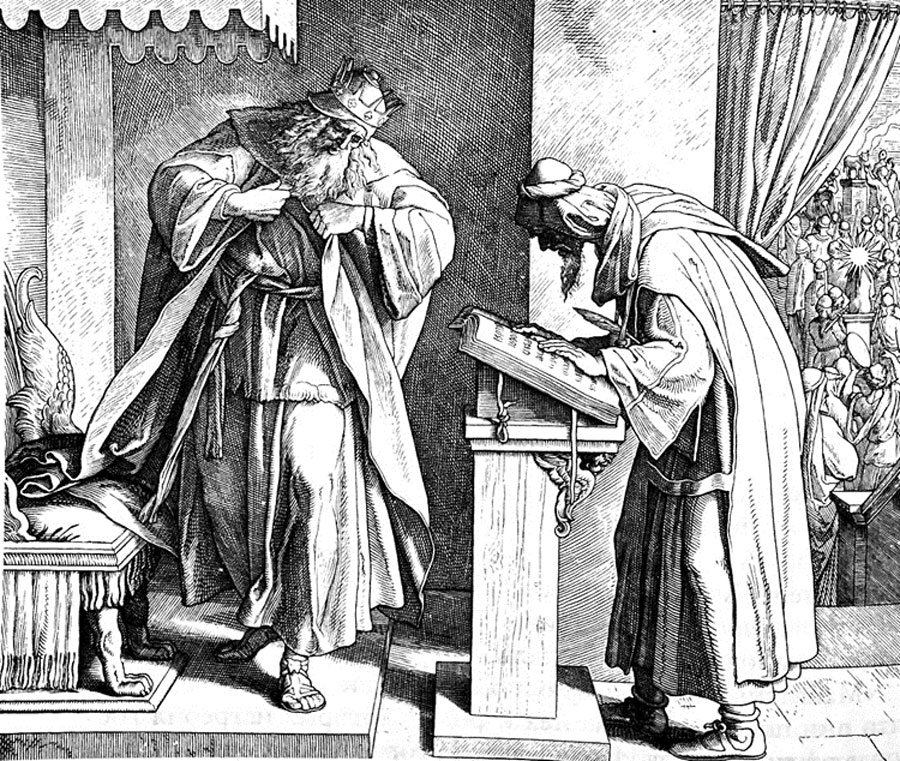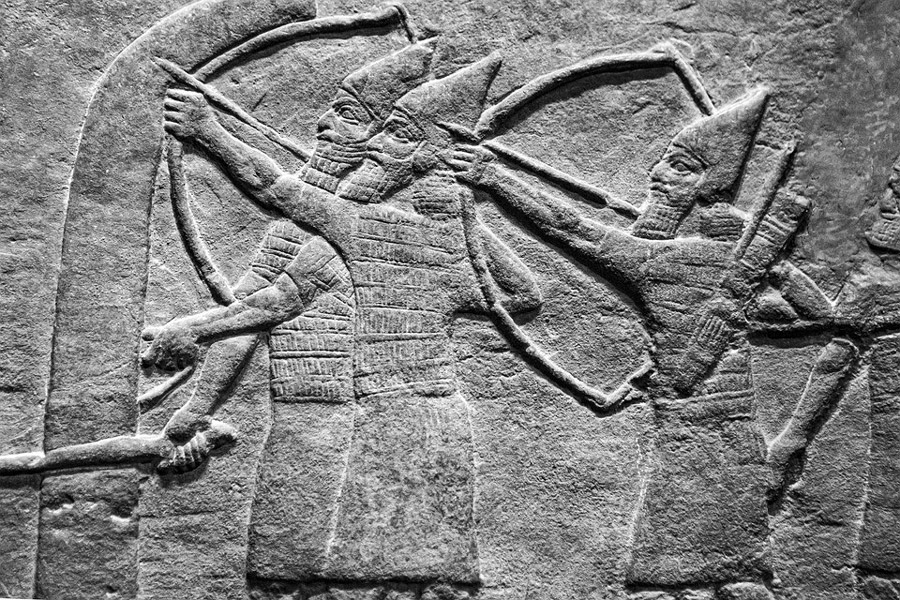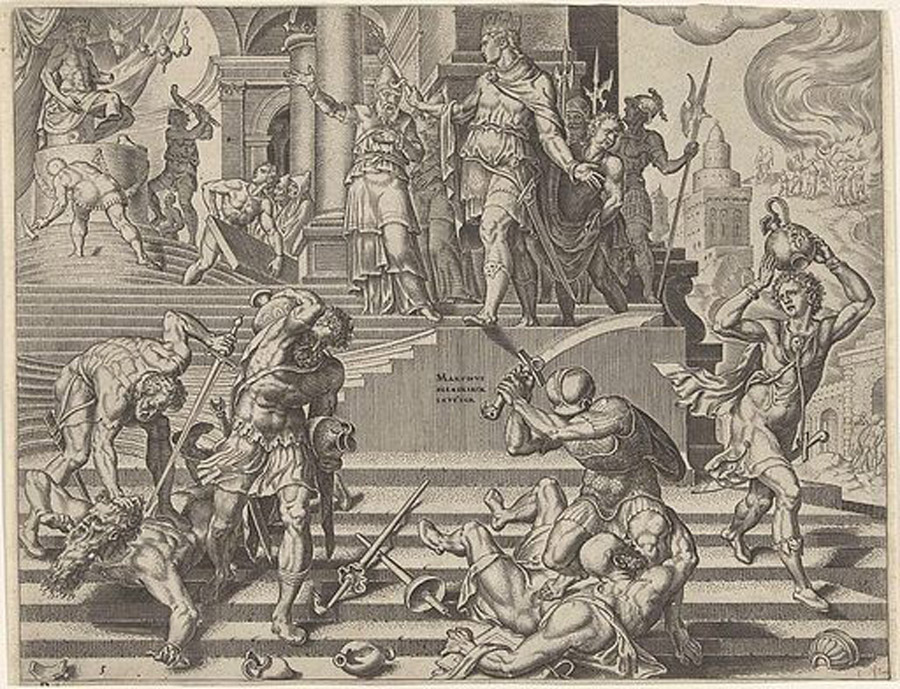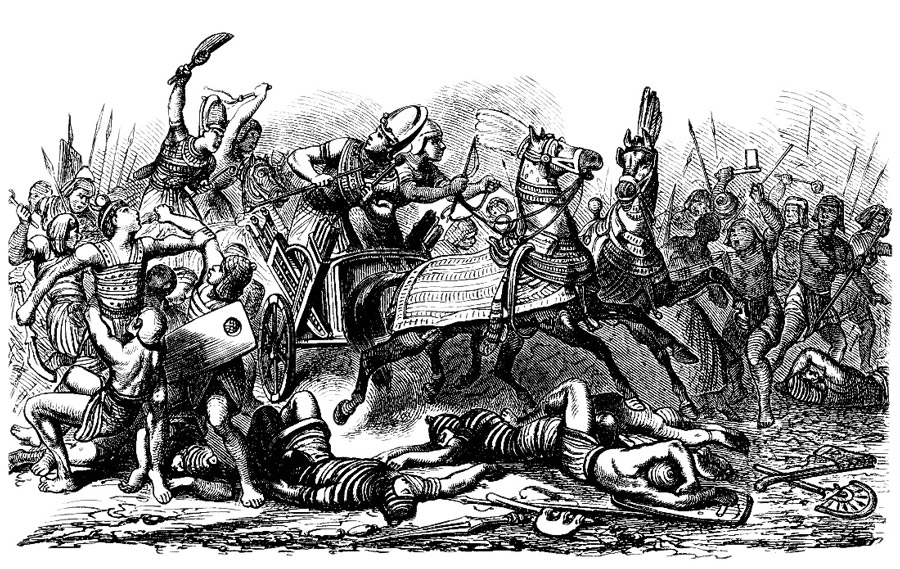The stories which make up the Old Testament of the Bible have existed for thousands of years. The legendary history told by these books provides a clear origin story for the Jewish people, and the Hebrew religion at their heart.
But just as important as the authors of these stories, are the people who compiled them into the text we know today as the Hebrew Bible. These editors have almost as much creative power in their hands when it comes to ordering the story, excluding certain traditions and emphasizing others, and changing the text.
This means that an important understanding of the Bible can be found by looking to these editors: who were they, what did they censor, and what did they add? And the first surprise may come in finding how late in the story these compilers of the Bible appear.
King Josiah and the New Book of the Law
Josiah, also called Josias, was a king of Judah who ruled from 640–609 BC. He is only known from the Bible, where he is referenced in the second Book of Kings.
During his reign, he initiated a religious reformation that bears his name and left an indelible effect on Israel’s religious traditions. During the renovation of the Temple of Solomon in Jerusalem, carried out during his reign and by his order, Josiah’s priests claimed to have discovered a scroll hidden in the stonework of the old building.
This scroll was proclaimed as a “New Book of the Law” by the king and his priests, and contained much of one of the core books of the Bible: Deuteronomy. This book and the Deuteronomic Code it contains outlines the special relationship between the Jewish people and their God, and includes many of the codes for behavior which survive in orthodox Jewish households to this day.

Some of the rules outlined in this newly discovered text are undoubtedly well established, and existed prior to being found in this scroll. But the codification of these rules, and many of the passages relating to the special relationship between the Jews and their god, have never been seen before.
Using this as a basis, Josiah’s priests took their collected origin stories of the creation of the universe, Noah and the flood, Abraham and Isaac, Moses and the Promised Land. They then added Deuteronomy and created the first books of the Bible, spurring on a religious revival in the kingdom.
It is difficult to understate how important this move was in developing the modern religions which stem from the Bible. An entirely new proto-monotheistic form of Judaism, centered around Jerusalem, was created in the reign of Josiah.
But what caused this religious revival? Were these truly the words of God, found at an opportune time to unite a people? Or was this an attempt to create a new narrative and legitimize the ruling class of Judah?
To find the answers to this, it is important to start with the kingdom of Judah in the time of King Josiah.
Who was King Josiah?
Josiah’s rule did not start in the most auspicious of circumstances. Coming to the throne at the age of eight after his father, King Amon, was assassinated, Josiah inherited a kingdom under threat.
- Asherah: did the God of the Hebrew Bible have a Wife?
- Why was the Infancy Gospel of Thomas Excluded from the Bible?
The Assyrians had conquered the kingdom of Israel to the north, and Judah had been a vassal of the Assyrian empire for a century. Foreign cults were imposed on Judah by imperial policy, suppressing or obscuring Israelite religious identity. But the conquerors themselves were facing internal struggles, and the mighty Assyrian empire was about to collapse.

With the Assyrians in disarray there was a power vacuum in the region, and an opportunity for the kingdom of Judah to strike out from Jerusalem and reclaim the lands they felt were rightfully theirs. As the chosen people of God, they would then ride to victory over all who had oppressed them.
Josiah would prove to be a survivor in these turbulent times. He would go on to rule for 31 years, from 640 to 609 BC, and have four sons.
Taking advantage of Assyria and the similarly weak Egypt, Judah was able to achieve an extraordinary level of independence from foreign powers. What he needed was something for his people to rally around, to cement his powerbase and create an independent Jewish state once more.
With this context, the discovery of the scroll around 621 BC is miraculous indeed. Evidence of the word of God, found in a temple associated with Jerusalem’s most glorious dynasty, was a powerful weapon which appeared at exactly the right time.
The Creation of the Hebrew Bible
The text of the scroll, with its provisions connected to ancient Hebrew religious practices strongly influenced Josiah and gave his reforms a decisive turn. All foreign religions were expelled from the Temple, which was thereafter dedicated only to worship of the Hebrew god Yahweh, and all local shrines were abolished, with sacrifices concentrated in Jerusalem.
The laws as outlined in the scroll were adopted by the Jewish faithful as part of their agreement with their god. The first books of the Hebrew Bible, ancient stories with Deuteronomy at their heart, were codified and compiled by this newly-zealous people.
It is generally agreed that there are four sources for the first books of the Bible. Two, known as the Yahwist and Eloi sources, detail the two origin stories in Genesis and Exodus. Then came the Deuteronomists, who created the first narrative thread which ran through these stories. They tied them together, and outlined the correct religious practices, as late as the 6th century BC.

The style and approach of Deuteronomy led to some of the key central books of the Hebrew Bible. The books of Joshua, Judges, Samuel and Kings, written after the time of Josiah, are the sole evidence for much of the history of Judah and Israel, and they are firmly based on the Deuteronomic tradition.
- The Hidden Text of the Sanaa Manuscript: A Prototype Quran?
- Zoroastrianism: the Religion of Fire that inspired the Hebrew Bible
The fourth source, known as the Priestly source, comes even later, after the scarring period for ancient Judaism known as the Babylonian Captivity. The text inserted by the Priests into the early books of the Bible details ritual practices and emphasizes the need to keep these going.
A Call to Arms?
Judah was certainly in need of a united front in the reign of King Josiah, but it was also a point where they could leverage such a position for strong advantage. With the Assyrians and Egypt distracted, it was time to seize the initiative.
In the spring of 609 BC Pharaoh Necho II led a large army north towards the Euphrates river to aid the Assyrians which were under attack by the Medes and the Neo-Babylonian Empire who would come to replace them. Supported by his Mediterranean fleet, Necho marched north by the coast road leading a vast force of mostly mercenaries through the lowlands of Philistia and Sharon.
The Judah army led by Josiah, however, blocked the path over the ridge of hills that closes in on the south of the huge Jezreel Valley. Judah, revitalized by their reaffirmed covenant with their god, and confident in their rediscovered faith, stood in Egypt’s way.
But faith, it seems, is no match for a good spear at your side. In the Bible, there are two tales of Josiah’s death. The second book of Kings just says that Necho encountered Josiah at Megiddo and killed him.

However, the second book of Chronicles gives a more detailed narrative, saying that Josiah was gravely wounded by Egyptian archers and taken back to Jerusalem to die. In the second story, his death was attributed to him “not listening to what Necho had said at God’s direction…”.
Necho had challenged Josiah for preventing him from passing, saying “What have I to do with you, king of Judah? I’m not coming to fight you today; I’m coming to fight the home with which I’m at war, and God has told me to hurry.” Josiah was interfering in a fight he had no part in, and he was defeated and killed for it.
Josiah’s religious reform may have united his nation, and in his “discovery” of the text of Deuteronomy and compilation of the Bible he made important steps towards a formalized Hebrew religion. But the assured victory that comes from having God on his side was denied him, and his victory never occurred.
Did Josiah fake the convenient discovery of the scroll to bring a sense of shared purpose to his kingdom? Did the priests hide the scroll to provide “miraculous” proof of the word of God at a time of crisis? Was the text truly hidden in the old Temple of Solomon?
One thing can be sure: Josiah was a key historical figure in shaping Judaism to this day.
Top Image: Was Deuteronomy inserted into the Bible much more recently than it claimed? Source: pamela_d_mcadams / Adobe Stock.
By Bipin Dimri